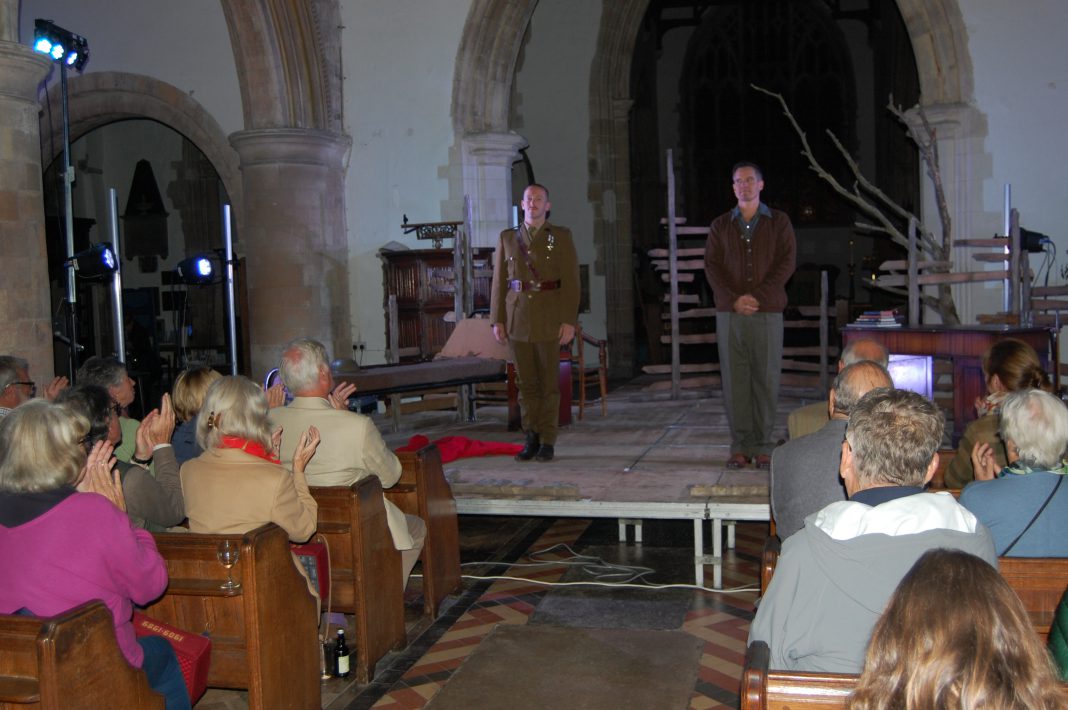The story of Siegfried Sassoon’s meeting with Wilfred Owen towards the end of the Great War has been told many times, but not so often has it been presented in the form of drama on stage. The performance at St Mary’s Church on Tuesday evening (as part of the Rye Arts Festival) held great emotional force.
Two talented actors, Daniel LLewelyn Williams as Sassoon and Owain Gwynn as Owen, immersed us directly in the feverish atmosphere of the Craiglockhart mental hospital for emotionally damaged officers, supposedly recuperating from the horrors of the trenches.
The interplay of personalities was fascinating to watch, the superficially self-confident author extending a cautious, disdainful welcome to Wilfrid Owen, the unsure aspiring poet, before becoming drawn to the latter’s latent poetical genius, both succumbing to emotional attachment.
One of them saw the horror of war as a cruel deception practised by incompetent generals and wilfully blind politicians, and responsible for unspeakable suffering. The other saw only the pity of war, the sacrifice of young lives and the destruction of his ideal of natural beauty. Both men knew they could not escape involvement, could not turn their backs and keep their own integrity.
The poems, the correspondence, the audible simulation of shell fire in the church were all deeply moving to the last moment. One of his most powerful poems recited that evening was “Anthem for doomed youth” which conveyed fully his theme of war and the pity of war: .
“What passing bells for these who die as cattle
Only the monstrous anger of the guns,
Only the stuttering rifles’ rapid rattle
Can patter out their hasty orisons.
No mockeries for them from prayers or bells,
Nor any voice of mourning save the choirs,
The shrill demented choirs of wailing shells;
And bugles calling for them from sad shires.”
The poem ends on the sad note of resignation and loss: “And each slow dusk a drawing down of blinds.” This is indeed an appropriate centennial theme for this year’s Rye Arts Festival.
Image Credits: Kenneth Bird .



